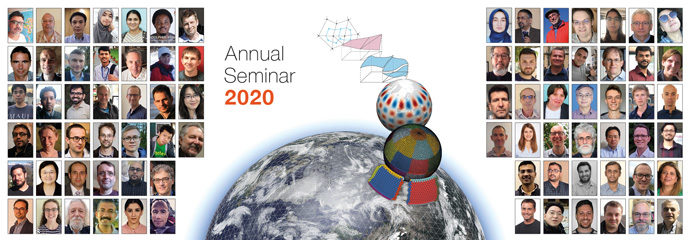
This seminar reviewed recent advances in numerical methods for atmospheric and oceanic models that form part of modern weather prediction systems. There are several objectives that drive research and development in numerical methods, such as improving the accuracy and efficiency of discretisations and addressing long-standing biases; improving conservation properties; improving the coupling of the dynamical core with physical parametrizations and other Earth system components; and improving uncertainty estimates in ensemble predictions.
A closely related topic covered in this seminar was how to develop efficient time-critical, very high-resolution global solvers on massively parallel architectures, addressing demanding communication and algorithmic scalability problems. This need has stimulated research and development not only in new numerical methods but also in the adaptation of existing numerical algorithms to enable their efficient execution with heterogeneous high-performance computing architectures based on accelerators. Both are essential activities that allow global weather prediction centres to exploit new technologies for implementing demanding next-generation high-resolution forecasting systems.
Seminar aims
The seminar is part of ECMWF's educational programme and is aimed at early career scientists but also more established scientists that want to engage more with numerical methods for atmospheric and oceanic modelling.
Organising committee
Michail Diamantakis, Samuel Hatfield, Christian Kühnlein, Sarah-Jane Lock, Kristian Mogensen, Andreas Müller, Inna Polichtchouk